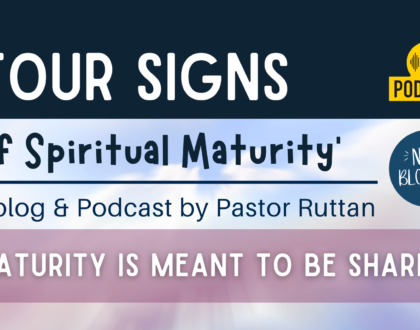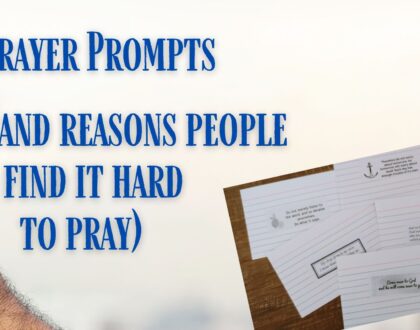Church-wide day of fasting and prayer on Thurs May 13 for our hospitals, care homes, and health care workers

by Westminster
By Pastor Ruttan
Background
We are in the third wave of the Covid-19 pandemic. Ontario is under another significant lockdown.
After more than a year, our hospitals, care homes, and health care workers continue to be under significant stress and strain.
Day of fasting and prayer
I am inviting Jesus’ followers at Westminster to unite in a day of fasting and prayer, calling on God for his powerful help, healing and hope.
Before you proceed, let me provide some background, helps, and cautions.
What is fasting?
We talk a lot about prayer. But fasting isn’t discussed or practiced as much. And yet, Jesus assumed his disciples would fast (Matthew 6:16-18; Matthew 9:15). It is not something we have to do, but something we get to do.
According to Stephen Um, the executive director of The Centre for Gospel Culture, the Bible references fasting about 77 or 78 times. To put that in context, it mentions baptism 75 times. Fasting was practiced by many people in the Bible including Moses, David, Elijah, Esther, Daniel, Anna, Paul and, of course, Jesus.
There are times when individuals fast, and there are times when groups fast. There are examples in the Bible. There are examples from other churches. And there are even examples of entire nations being called fast. In 1756 the British king called for a day of prayer and fasting in light of the threat of French invasion.
In A Spiritual Formation Primer, Richella Parham defines fasting like this: “Fasting is, in simple terms, the voluntary denial of some normal function to allow for intense spiritual activity.”
We should be clear that we are not earning anything, nor are we trying to pressure God. The Second Helvetic Confession states that “we deprive the flesh of its fuel so that it may the more willingly and easily obey the Spirit.”
Fasting usually has to do with going without food for a certain period of time for spiritual purposes, but it could be going without something else as well. Some examples are given below.
Not normal
It’s safe to say that fasting is not fashionable. In North America we are not accustomed to sacrifice. It’s more common to focus on getting things instead of giving up things. So perhaps this spiritual practice is long overdue for some attention.
The Invitation
I’ve said that I am inviting Jesus’ followers at Westminster to unite in a day of fasting and prayer, calling on God for his powerful help, healing and hope.
In light of the fact that many people have not done this before, I’m suggesting a partial fast. A “normal” or “absolute” fast is something that you need to pray about and work up to with proper preparations; but a partial fast is less severe and more appropriate for those who don’t have experience with fasting.
I’m not setting exact guidelines, but for those adults who are healthy my suggestion is that you still eat at least one meal (either breakfast or dinner, probably dinner), and just have fruit for the other meal; continue with water and juices for the rest of the day. This should be manageable.
This allows for more intense spiritual activity. Spend extra time (perhaps when you would otherwise be eating) by reading the Bible—perhaps the Psalms—and praying to God in Jesus’ name for his powerful help, healing and hope for our hospitals, care homes, and health care workers.
We are in a time of need and desperation.
A suggested guideline would be as follows:
- Morning hours: Pray for hospitals. Guidance may be obtained by reading and praying through Psalm 23.
- Mid-day hours: Pray for care homes. Guidance may be obtained by reading and praying through Psalm 91.
- Evening hours: Pray for health care workers. Guidance may be obtained by reading and praying through Psalm 121.
At 7pm EST, from our various locations we will all sing O God our Help in Ages Past (words below) and say The Lord’s Prayer. We do this on our own, not on the live-stream.
If you are unable to change your dietary patterns (see the next section), I suggest you fast from something else such as media, news, the internet and television. Or, you may choose to do both.
Concerns
If you are not used to fasting, you should be cautious and careful. If you are weak or unwell, do not fast. If you have health concerns, consult your doctor, or do not fast.
Further, if you are not used to fasting and are engaged in strenuous activities (like, for example, something you are required to do for work), you may want to fast from something non-physical.
If you don’t feel right, end your fast, but continue in prayer. If you live alone, tell someone else what you are doing and exercise increased caution.
I should note that for those who are new to fasting, headaches are not uncommon. Nor is stomach grumbling; our stomachs are used to getting their way!
Children
In this situation, fasting is not for children. However, have a discussion with them and they can go without something non-physical, and increase their time in prayer and devotion as well.
Motives
We are engaging in a heightened level of spiritual activity. Our motives should be pure before the Lord. Don’t brag, boast or post to others about what you are doing (see Matthew 6:16-18).
May the Lord bless our day of fasting and prayer to his glory, and for the healing, help and hope of our hospitals, care homes, and health care workers.
Lyrics
O God, our help in ages past
O God, our help in ages past, our hope for years to come,
our shelter from the stormy blast, and our eternal home.
Under the shadow of thy throne thy saints have dwelt secure;
sufficient is thine arm alone, and our defence is sure.
A thousand ages in thy sight are like an evening gone,
short as the watch that ends the night before the rising sun.
O God, our help in ages past, our hope for years to come,
still be our guard while troubles last, and our eternal home.
Words: Isaac Watts (1674-1748), alt Music: ST. ANNE, William Croft (1678-1727). Words: public domain
Recommended Posts

Four Signs of Spiritual Maturity
April 25, 2024

Covid-19 Protocols Update
June 23, 2022
